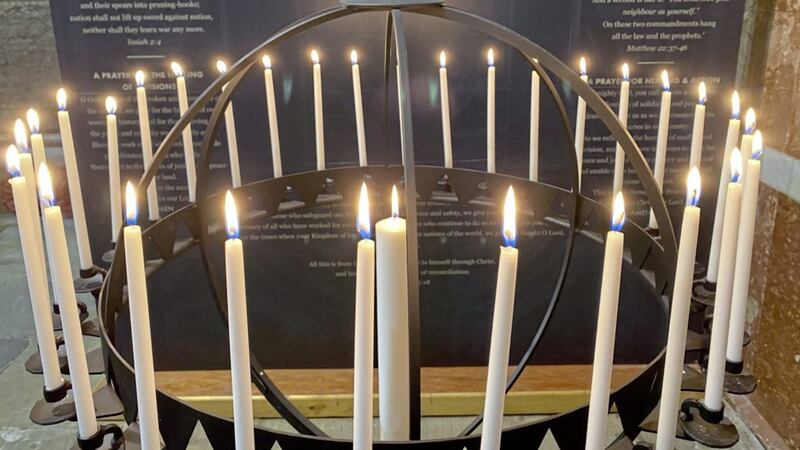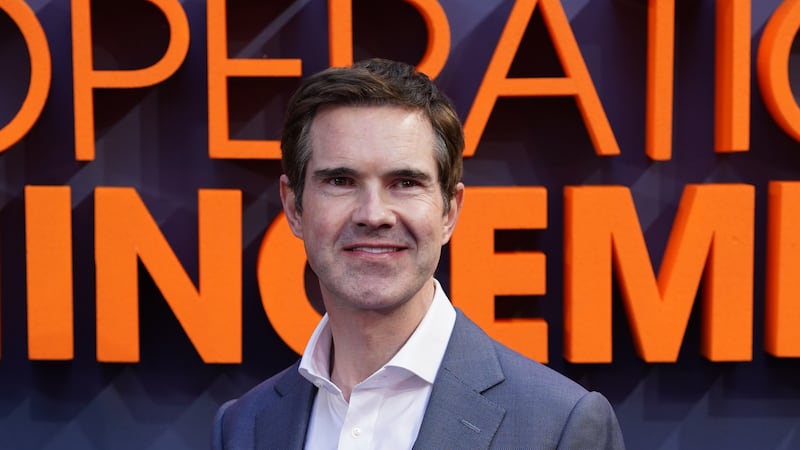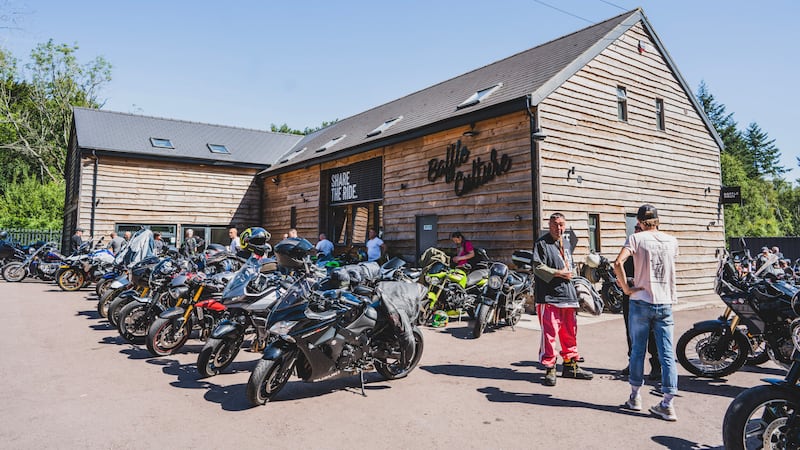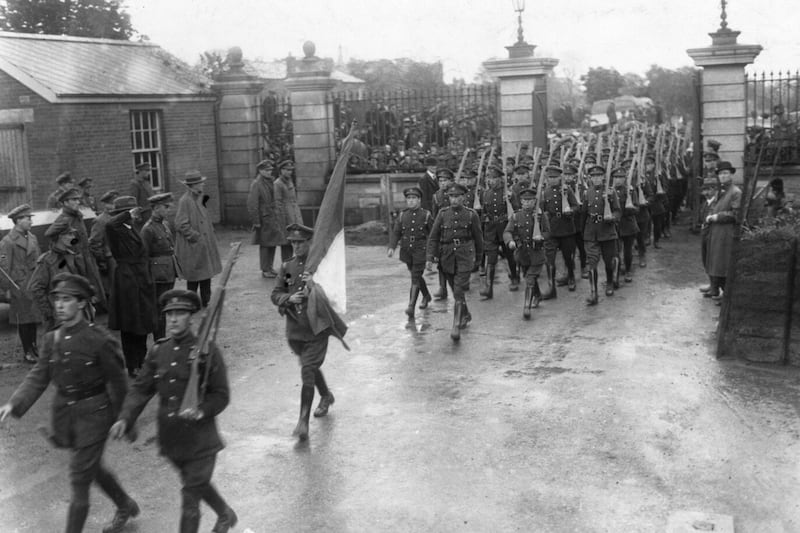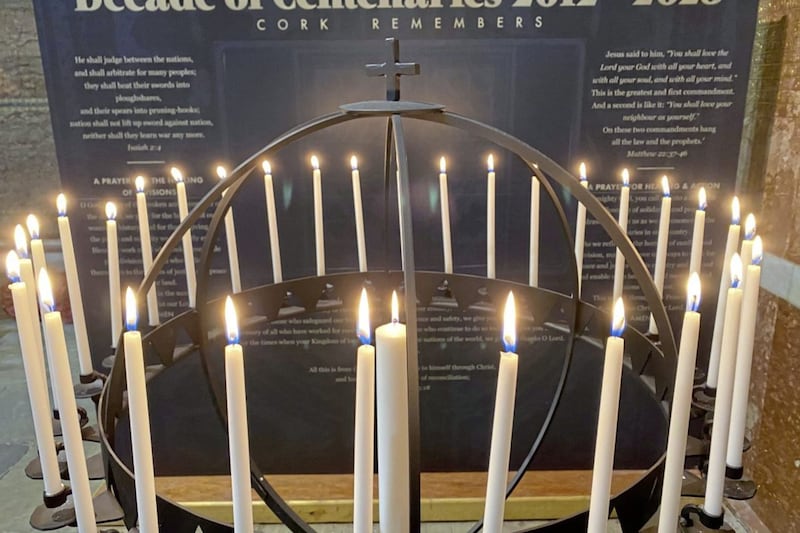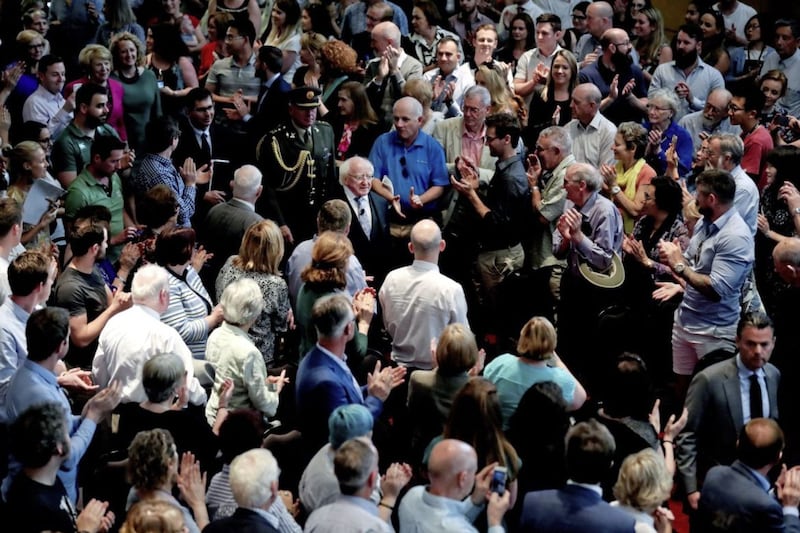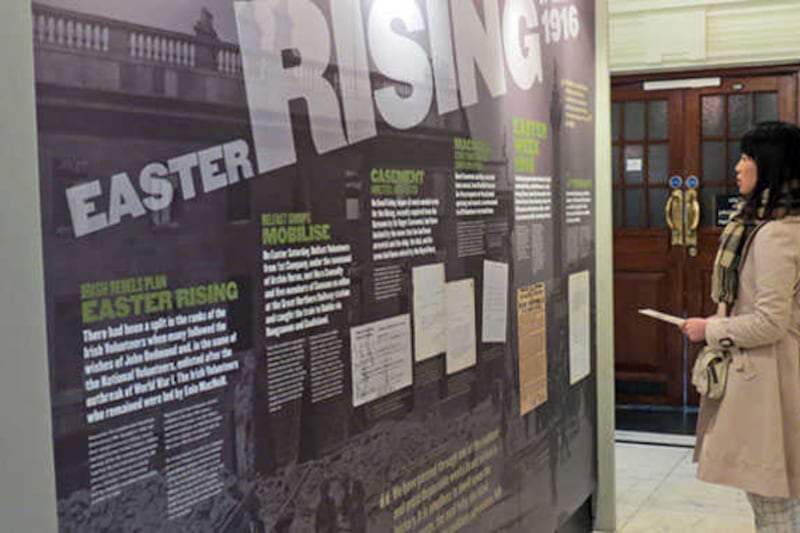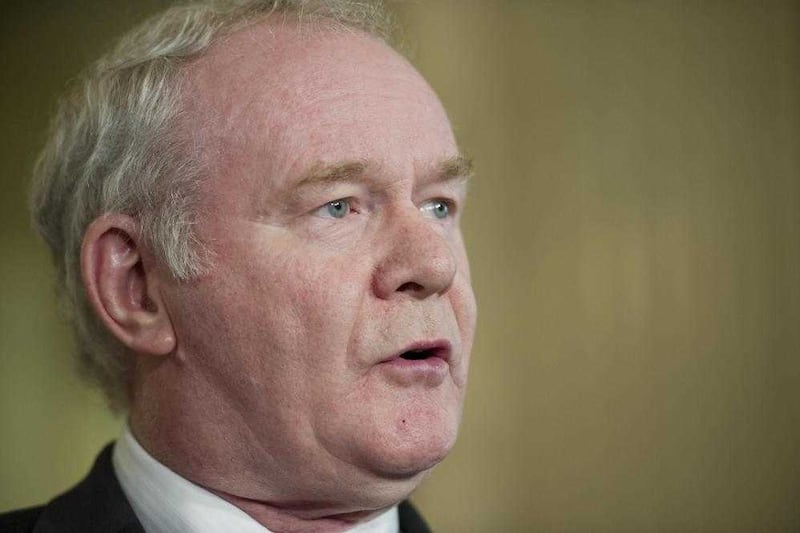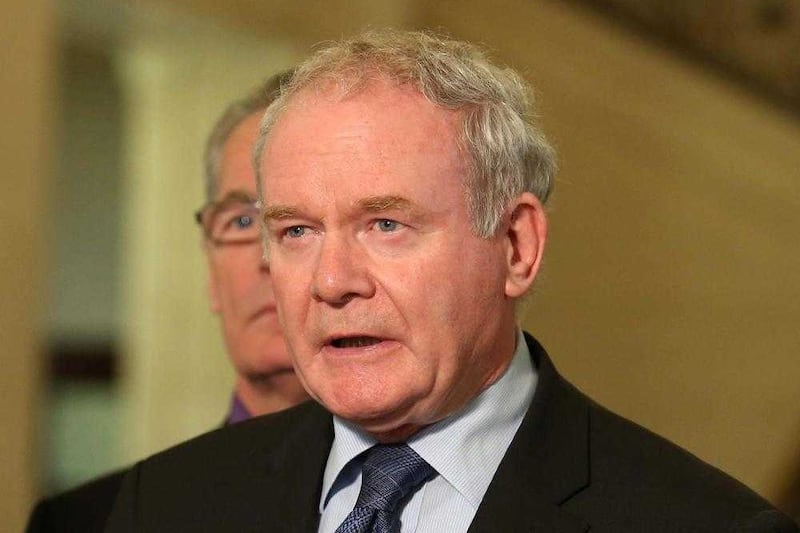VISITORS to St Fin Barre's Cathedral in Cork City may notice a 'neutral' space in which they're invited to pray and reflect on some of the most harrowing events in recent Irish history.
It's part of the Diocese of Cork, Cloyne and Ross's 'Centenaries, Commemoration and Reconciliation Project'. Anniversaries which some feared might sow division are instead being reimagined as opportunities for reconciliation.
"Actually, it's more than a decade," says the Church of Ireland Bishop of Cork, Cloyne and Ross, Dr Paul Colton, "when you start going back to maybe 2012 and then thinking ahead to 2023, but Cork was very much at the vortex of all of that period."
Growing up in Cork, Dr Colton had come to know "very intimately" the stories of some of the things that happened there and also of stories being told in different ways by different people.
"There was a difference of a gloss on the story, sometimes the content was different, sometimes the feeling, the emotion, about some of the same things was different," he recalls.
"And I became aware – as a teenager, even – of some of the complexity of the period."
When he was five years old, his primary school celebrated the 50th anniversary of the Easter Rising: "There was an old alcove which almost became a shrine to 1916... and I can still, in my mind's eye, vividly see the teacher pinning up the green and the white and the orange crepe paper around the alcove, and then the board – the poster – that was issued to all schools. So, I became intrigued with it all from then on."
As a Protestant in Cork, the young Paul Colton became conscious of difference.
"We didn't put out a papal flag on Corpus Christi – we were about the only ones on the road who didn't – and you think, 'Well, what's that all about?' And then you happen to be at your friend's house, at teatime, and as a seven-year-old you're talking away and then you look around and you realise they're all quiet because it's the time of the Angelus," he says.
"So, I grew up fascinated by interaction with this difference, and it sort of compelled me towards understanding and ecumenism."
Returning to Cork as Bishop, in 1999, "in the run-in to the decade of centenaries", he decided that the Churches should get involved: "As Churches, we're told by Saint Paul that we're entrusted with the ministry of reconciliation. So, whatever we're doing – whether it's within ourselves, with our neighbour and even, most challengingly, with our enemy – reconciliation is a watchword."
Dr Colton has been Bishop of Cork for 22 years. Might commemoration be 'different' if he was a curate in Northern Ireland, instead?
"Well, I actually was that curate at the start of my ministry..." – he spent a number of years in Lisburn and Belfast – "...so, it has given me something to understand and appreciate," he says.
"There's something of that, too, in my own family story. The Coltons only came to Ireland in the late 19th century as part of what was then 'the Army', and they all served.
"And it was in that context of voluntary work – caring for the wounded – that my grandmother met my grandfather. And they would have been people who would've looked on in horror at what was happening in this period 100 years ago.
"Yet you only have to go on another 24 years, and you find that my grandfather, who had served in what we would have then called the British Army, was by then a district adjutant in the local defence force during the Emergency, so you can see the journey being made – a journey of initially being uncomfortable with the new state, certainly being uncomfortable with the trajectory towards independence, but yet then accepting it and settling into it.
"In contrast, my wife's family were from north west Cork, and they were very close to some of the things that went on during this very period. They were living within a stone's throw, for example, of Kilmichael [where 17 members of the RIC's Auxiliary Division were shot dead in an IRA ambush].
"It's not that long ago, a hundred years, so that's why there's a rawness still for some people, because people want to be loyal to their own, and yet people have also made a journey, themselves, to something new, and I see that in my own children as well."
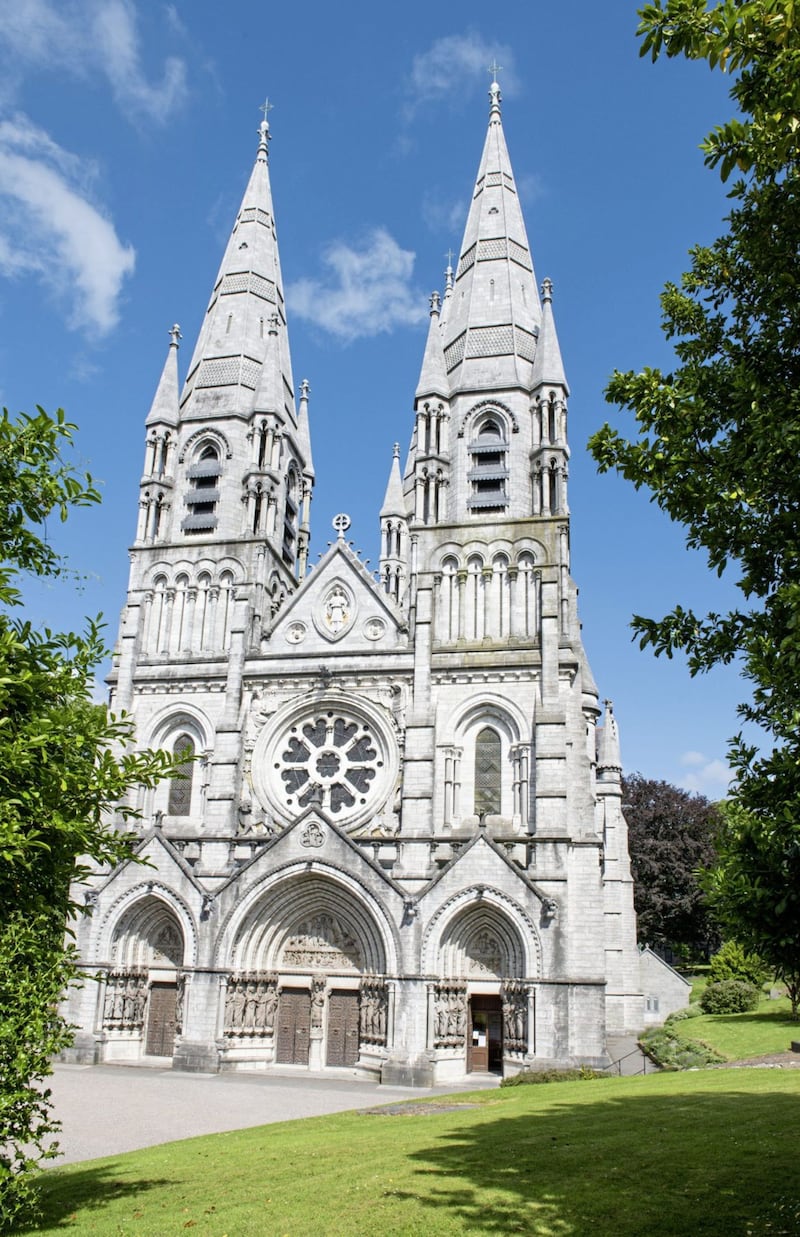
From 2014 to 2018, St Fin Barre's became a First World War remembrance space.
In 2016, Dr Colton and the Dean of Cork, Very Rev Nigel Dunne, worked with the Western Front Association and local people to humanise commemoration of the Battle of the Somme.
Creating space for the War of Independence and Civil War periods has proved more problematic.
"We know that here has been controversy about the Glasnevin Wall," the Bishop says, "and about that effort to have an RIC commemoration, so – even though it's the same hundred-year period – it's funny: people really didn't have an issue remembering Germans, and so on, during the First World War period, but somehow the current period for some people is rawer."
Evidently, there are still people carrying hurts generations later. "There are certainly people who don't want to talk about it," Dr Colton says. "I know that the former Taoiseach said that the year of silence was over – he said that during a visit to west Cork a few years back – and I actually didn't agree with that.
"One parishioner said to one clergyman here, 'Tell the Bishop to leave well alone', you know. 'Let's just be delighted where we are now, don't go digging things up, we don't want to do that'. I have to respect that, too. I have to respect the silence."
Dr Colton points out that there was a time in Cork when the Catholic and Church of Ireland bishops took turns to appear at certain civic functions "because they wouldn't be seen together".
A recent Service in St Fin Barre's, for the centenary of the Truce, showed how far Cork has moved. It included representatives of the Presbyterian, Methodist and Catholic Churches, the Society of Friends, the Lord Mayor of Cork and the Mayor of Cork County, government ministers and TDs.
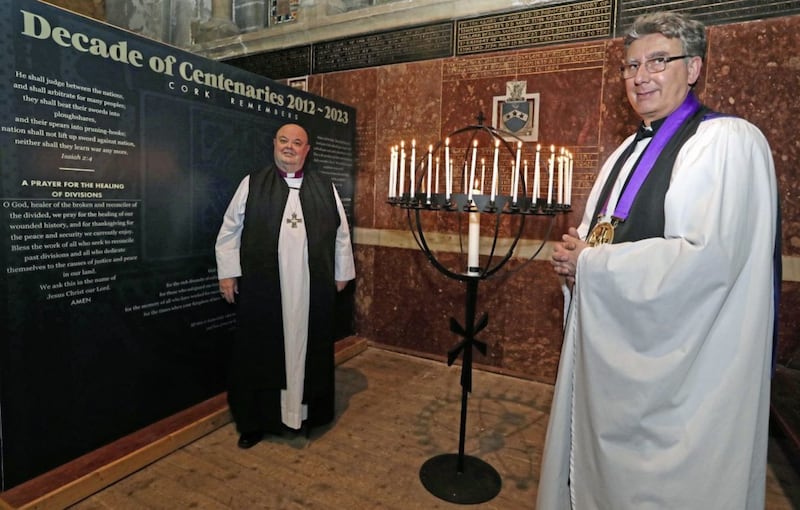
Dr Colton also writes about commemoration frequently on social media.
"The man who was Bishop a hundred years ago would [probably] be horrified because we have to accept that at that time, most members of the Church of Ireland were probably horrified at the idea of losing the Union, in the same way that in the north east now, there are members of the Church of Ireland who want to preserve the Union," he explains.
"And so, my predecessor at that time, Bishop Dowse, I think he was a courageous man because on the one hand he walked in the funeral procession for the Auxiliaries who were ambushed at Kilmichael and yet, on the other hand, he was a co-patron of the fund that was set up to support the Mac Curtain family [Tomás Mac Curtain was a Sinn Féin Lord Mayor of Cork whose assassination was blamed on RIC members].
"There must have been personal turmoil and reflection and deliberations to be done at that time. It can't have been easy."
Dr Colton has previously described the commemoration space in St Fin Barre's as 'neutral' but it is undeniably Christian.
"It's neutral in the sense that if somebody comes to light a candle there, I don't know who they're lighting the candle for," he says.
"I don't know whether they're lighting it for the memory of Tomás Mac Curtain or for the memory of King George V."
In the post-Brexit, Northern Ireland Protocol-wracked north east of the island, Protestant depopulation in the former Free State and the Republic comes up often.
Despite the demographics, Dr Colton is confident that the Church of Ireland has a role to play in the modern Republic.
"Our population dropped very significantly in this centenary period that we're talking about, but you've got to be what you are and fulfil the calling that you believe has been given to you, regardless of the numbers," he says.
"And small numbers of people can do significant things and be part of a rich tapestry."
This interview is part of Maynooth University's 'A Journey in Self Belief' project which seeks to encourage self-reflection by the Protestant community.
